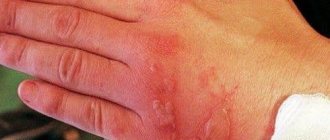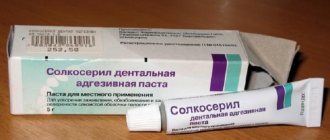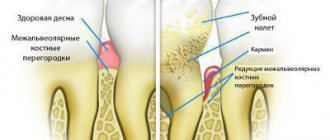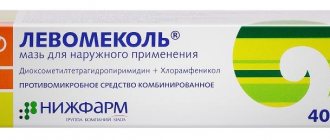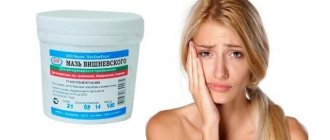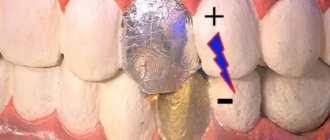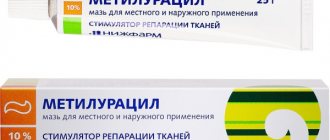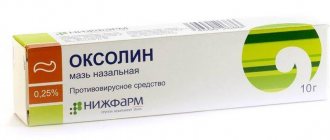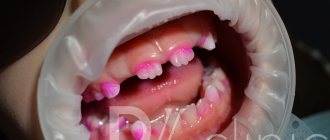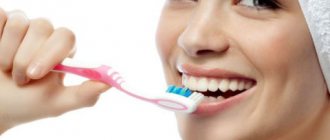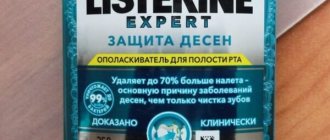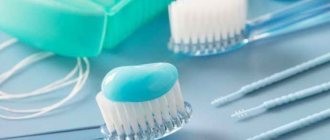When do you need medications for gum disease?
Inflammation of the gums is medically called gingivitis. The disease occurs in adults and children and can be caused by various factors. In children, the pathology is most often associated with teething, weakened immunity, and injury to the gums by various objects or rough food.
Adults suffer from gingivitis for a variety of reasons. The most common damage to the gums is caused by crowns and dentures that are not installed correctly. Sometimes the disease is associated with autoimmune diseases and chronic vitamin deficiency.
The use of products in the form of solutions, ointments and gels is necessary when the following symptoms appear:
- Pain when eating or even drinking liquid.
- The appearance of bad breath in the absence of problems with the stomach or teeth.
- Swelling of the gums and redness.
- The appearance of ulcers or erosions on the gums.
- Bleeding gums when brushing teeth.
Such signs can be the result of inflammation and proliferation of pathogenic microorganisms in the oral cavity. The patient is recommended to consult a specialist to undergo a diagnostic examination and prescribe appropriate treatment.
Medicine for inflammation of the gums is often necessary for women during pregnancy, since the body experiences a lack of vitamins and minerals, which affects the condition of the gums. If a person smokes for many years, his gums are more susceptible to inflammation, since the protective barrier is weakened by toxic substances.
Periodonticide for tooth pain
This ointment is also often used to suppress pain due to the development of caries that has reached the nerve. Also, Parodontocide will perfectly relieve discomfort due to wearing implants, braces and other dental structures. The gel can be applied in two ways. One of them is the classic version, in which you simply rub 1 cm of the medication into the affected tooth. You can repeat the manipulations three times during the day.
Periodontocide is used to suppress pain during the development of caries that has reached the nerve
According to the second option, it is allowed to make special compresses. To do this, apply 1 cm of the active substance to sterile gauze and apply it to the sore spot for 15 minutes. When using Periodontocide in this way, there may be a slight burning sensation. Applications can also be used three times a day.
Attention! The medicine contains a large number of herbal components. But due to the fact that most of them are esters, Parodontocide is not used during pregnancy. Before applying, you should make sure that you are not allergic to at least one component in the composition, so as not to provoke swelling.
Video about Parodontotsid ointment
Inexpensive remedies for inflammation of gum tissue
Inexpensive products are especially popular among patients. They provide a therapeutic effect, but have a moderate or even low cost, which allows everyone to begin treatment without waiting for complications to develop.
The cure for gum inflammation is calendula tincture. It helps reduce inflammation.
| Means | Features of application |
| Tincture of calendula | Alcohol-based natural product. The active ingredient is calendula flowers, which are infused with alcohol. The product has anti-inflammatory, antiseptic and healing effects. The tincture can be purchased at a pharmacy and used 2-4 times a day for rinsing. For 1 procedure you will need 200 ml of warm water and 15 ml of tincture. The medicine must be added to water and rinsed the mouth. After the procedure, do not eat for 1 hour. The duration of treatment is 7-10 days, depending on the severity of symptoms. |
| Chlorhexidine | An effective antiseptic with anti-inflammatory properties. The solution is inexpensive, but allows you to quickly eliminate the most severe symptoms of inflammation. Use it for rinsing; add 1 tbsp to 100 ml of water. l. means, rinse the mouth 2-3 times a day until signs of gingivitis are eliminated. |
| Hydrogen peroxide | One of the most accessible means for destroying microbes in the oral cavity. Additionally, the medication does not irritate the mucous membrane and does not worsen the condition in case of ulcers on the gums. A 3% solution should be used, which is added to 200 ml of water in an amount of 20 ml. You should rinse your mouth 3 times a day after meals. The duration of treatment is 5-14 days, depending on the severity of symptoms. |
Such remedies are considered quite effective, but only at the initial stage of the disease. If a patient develops complications or acute symptoms, these medications are not used as the sole treatment.
Symptoms of periodontal disease
Periodontal disease develops quickly and leads to pain during chewing and other unpleasant sensations.
INTERESTING fact: Allergy to heparin ointment
The disease can be diagnosed by the following signs:
- pallor of the gum mucosa;
- no sign of inflammation;
- no bleeding;
- exposure of the neck of the tooth;
- the presence of pathology of the cardiovascular and endocrine systems.
Before using heparin ointment for gums, you must remember that the first step to complete recovery should be daily thorough oral care. The brush should be soft and of high quality; it is better to buy it in pharmacies. It must be changed every 6 months to prevent excessive development of pathogenic bacteria on its surface. Brush your teeth twice a day for 3 - 4 minutes. Use rinses, dental floss and toothpaste intended for people with problem gums. Visit the dentist regularly and eliminate all dental pathologies in a timely manner. Eat regularly and balanced.
Drug therapy usually includes antibacterial, complex vitamin preparations, as well as gels and ointments for local action.
The latter carry out:
- anti-inflammatory,
- painkiller,
- antiseptic effect.
Gels
The medicine for gum inflammation in the form of a gel is considered quite convenient and helps to carry out treatment yourself at home. Today, the pharmaceutical industry produces many products.
However, some of them are more effective:
- Solcoseryl – one of the most popular and effective gels for treating gums. It contains an extract from the blood of dairy calves, which provides an anti-inflammatory effect and stimulates tissue regeneration. The advantage of the medicine is its natural composition and safety, as well as reducing the risk of developing allergies. The medicine is used for gingivitis and other oral pathologies accompanied by gum inflammation. It must be applied 2 times a day for 10 days.
- Actovegin is another effective and relatively safe drug based on an extract from the blood of dairy calves. The drug has the same properties as Solcoseryl, is well tolerated by patients and helps to quickly cope with stomatitis, gingivitis, and other inflammatory pathologies. The composition must be applied 2-3 times a day, the course duration is 10-14 days.
- Parodium is a unique and very effective drug that contains a plant component in the form of rhubarb extract, as well as chlorhexidine. It has antiseptic, anti-inflammatory and regenerating properties, helps eliminate inflammation and significantly shorten the patient’s treatment period. The advantage of the medicine is the combination of herbal and synthetic components to achieve a therapeutic effect. The medication is prescribed for bleeding gums, swelling and the development of inflammation. The gel must be used 2 times a day, applied to the gums, and repeated for 5-10 days in a row.
- Periodontocyte is a gel containing extracts of sage, cloves, mint and oregano. The drug has an anti-inflammatory effect, gently cares for the gums, and prevents the proliferation of microbes. The gel is prescribed for gingivitis, gum irritation from dentures, and inflammation associated with exposure to chemical components. The drug must be applied 2-3 times a day, repeated for at least 7 days in a row. The main advantage of the medicine is its natural and safe composition.
Any of the remedies should be used only after consulting a specialist. In some cases, medications provoke an allergic reaction, so you should not self-medicate.
What kind of pain-relieving dental gel will help an adult?
Adult patients are prescribed Kamistad dental gel, which contains the analgesic component lidocaine and chamomile extract with a weak anti-inflammatory effect. Helps with quick and long-lasting pain relief, accelerates the healing of the mucous membrane. Recommended from 12 years of age for any pain in the gums and mucous membranes of the oral cavity:
- stomatitis;
- cheilitis;
- dental manipulations and operations;
- gingivitis;
- wearing dentures, braces;
- eruption of wisdom teeth;
- irritation during diagnostic procedures in the oral cavity.
Apply 3 times a day. After rinsing and drying, the painful area is lubricated with a 0.5 cm column of gel with light rubbing. During the period of getting used to the removable denture, the same amount is applied under the edge of the prosthetic product. In rare cases, Kamistad causes allergic reactions. It is contraindicated in case of intolerance to the components, pregnancy and lactation.
Anti-inflammatory gel for gums Metrogyl denta
Metrogyl Denta is an anti-inflammatory gel for gums; it contains the antibacterial agent metronidazole. When it is applied to the mucous membranes, the necessary concentration is created to locally destroy bacteria, and a minimal amount is absorbed into the blood. The effect of metronidazole is enhanced by the antiseptic chlorhexidine.
The drug is prescribed for applications in various forms of gingivitis:
- catarrhal (redness and swelling);
- hypertrophic (gum growth);
- ulcerative and ulcerative-necrotic;
- with acute and chronic course;
- local and widespread;
- traumatic (caused by dentures, dental procedures).
Metrogyl Denta can also be prescribed to prevent exacerbations of chronic gingivitis.
Mode of application
The method of use of the drug is indicated in the table.
| Disease | Frequency of applications per day | Course duration | Features of therapy |
| Acute gingivitis | 2 times | 7 days | Before applying, you need to rinse your mouth, after 40 minutes you should not eat or drink |
| Acute periodontitis | 1 application for 30 minutes (performed by a dentist) every other day, then 2 times a day | 3-5 applications, systematic treatment 10 days | After removing the plaque, place it in the gum pockets, then lubricate the gums |
| Chronic periodontitis or gingivitis (prevention of exacerbation) | 2 times a day after hygienic brushing of teeth, massage for 2-3 minutes | 7 days | Preventive courses are prescribed 2-3 times a year |
| Alveolitis after tooth extraction (prevention of development) | Initially, application immediately after removal, then 2-3 times a day | 5-7 days | Apply to the hole without rubbing |
| Bleeding gums and bad breath | 1 time before bed after cleansing with paste | 14-20 days | Rub into gums for 2-3 minutes, then do not rinse |
Adverse reactions and precautions
Side effects of Metrogyl Denta:
- rash;
- hives;
- itching;
- swelling of the skin;
- unpleasant taste in the mouth (similar to metal) or bitterness;
- nausea;
- headache;
- white coating on the tongue and teeth;
- burning at the application site.
It is important to wash your hands well after applying the drug, since accidentally touching your eyes can cause pain, irritation, redness and watery eyes.
Drinking alcohol while using the drug is strictly prohibited. When drinking alcohol, nausea, headache, sweating, abdominal cramps, and hot flashes occur.
Metrogyl Denta should not be used under 18 years of age.
Watch this video for instructions on how to use Metrogyl Dent:
Elugel for oral cavity against inflammation
Elugel gel helps against inflammation in the oral cavity, as it contains an antiseptic - chlorhexidine digluconate. It also has a hemostatic effect. Prescribed for plaque on teeth, treatment and prevention of tartar deposits, gum inflammation. Elugel is indicated for treating the oral cavity after tooth extraction or implantation, and dental operations. Apply 3-4 times a day for no more than 7 days.
Ointment for gums from inflammation Cholisal
Cholisal ointment helps against inflammation of the gums, relieves pain within 2 minutes after application, and this effect lasts for at least 4 hours. It is used to treat stomatitis, gingivitis, periodontitis, cheilitis, oral lichen planus, thrush (together with antifungal agents). The drug is also prescribed for discomfort from prostheses, pain after injuries and operations.
Cholisal is rubbed into the gums 2 times a day for 1-1.5 weeks. It is important to consider that long-term use without dental treatment of the oral cavity makes inflammation chronic. The bone bed is destroyed, the tooth begins to loosen. Therefore, if there is no result, you must consult a doctor.
The drug is also approved for children, but under one year of age it is used with caution due to the presence of anise oil. Therefore, it is not recommended to apply more than 0.5 cm of gel column at a time, and the first time a minimum amount is applied - the size of a match head. If there is increased salivation and cough, Cholisal should not be used.
In addition to drooling, Cholisal can cause other side effects:
- pain, burning at the application site;
- redness and irritation of the mucous membranes, tongue, lips;
- nausea, vomiting;
- rashes.
Watch this video for instructions on how to use Cholisal gel:
Ointments
Many ointments are also used for gingivitis and other pathologies accompanied by gum inflammation. For example, the drug Actovegin is also available in the form of an ointment that can be used for inflammation. Due to the presence of an extract from the blood of dairy calves, the medication has a pronounced anti-inflammatory and regenerating effect.
This allows you to get rid of acute signs of the disorder in 7-10 days. The ointment must be applied 3 times a day, preferably after meals. The duration of treatment is 10-14 days.
Scroll:
- Clotrimazole – antifungal ointment, which contains the active ingredient of the same name. It is prescribed not only for damage to the oral mucosa by a fungal infection, but also for gingivitis, which is treated with antibiotics. The product helps prevent candidiasis, stops the growth and reproduction of microorganisms and eliminates the symptoms of inflammation. It must be applied 2 times a day, the course duration is 5-7 days.
- Methyluracil is a fairly effective ointment for gum inflammation. It is used for different stages of gingivitis, even with the development of complications. The composition contains the active component of the same name, which relieves inflammation and stimulates tissue regeneration. The medicine must be applied in the form of applications to the affected areas 2 times a day. The duration of treatment is determined individually, usually 10 days is enough.
- Heparin ointment is used for inflammation of the gums, accompanied by bleeding and severe swelling. The composition contains heparin, which improves the condition of the walls of blood vessels, relieves swelling and improves microcirculation in tissues. Thanks to this, it is possible to get rid of acute symptoms in 3-5 days. The ointment is applied 1 to 3 times a day. Its main advantage is its one-component composition, which rarely provokes negative reactions.
- Levomekol is an ointment based on the antibiotic chloramphenicol. It has an anti-inflammatory effect in gingivitis with severe symptoms of inflammation, swelling and other manifestations. The medicine must be applied morning and evening for 7 days. The product is considered effective, but often provokes complications, since the active component is a potent antibiotic.
Carmolis Phytogel against toothache
The drug is distinguished by its naturalness and good tolerability among patients of all groups, including during the eruption of baby teeth. Carmolis Fitogel should be applied every 4-6 hours, but the daily number of uses cannot exceed 3 times.
Carmolis Fitogel is distinguished by its naturalness and good tolerability
For treatment, you need to squeeze out a little ointment, its amount is approximately 1-3 cm. The stronger the pain, the more product you need to use. When treating children, the dosage of 2 cm of Carmolis should not be exceeded.
When using this product, you can get a noticeable analgesic effect, and there is also a cooling and softening effect. The gel allows you to reduce discomfort within 2-5 minutes after treatment.
The drug has a significant cooling and softening effect, due to which relief comes within the first minutes after using Carmolis.
Attention! Due to the propolis and plant esters contained in the medication, there is a high probability of an allergic reaction in the form of severe swelling of the mucous membrane. If you are not sure of the complete tolerability of all components or the patient is hypersensitive to some components, it is better to choose a different ointment.
Gels for gum inflammation during teething in children
Medicine from a pharmacy for teething in children is considered one of the few ways that helps get rid of inflammation, swelling and redness of the gums and alleviate the child’s condition.
There are several effective medications approved for use:
- Holisal – the most popular gel for eliminating inflammation and accompanying symptoms during teething in children. It must be used with caution, since it contains choline salicylate and cetalkonium chloride. The product has anti-edematous, anti-inflammatory and analgesic effects. It is necessary to apply the product in a small amount once a day. The duration of the course is determined by the pediatrician.
- Kamistad is another popular remedy based on chamomile extract and lidocaine. It has an anti-inflammatory and antiseptic effect, and has a beneficial effect on the gums. Prescribed to children from 3 months of age during teething and complications associated with this process. It must be applied 2-3 times a day in a thin layer, repeated for several days in a row until the pronounced symptoms disappear.
- Mundizal is an antiseptic, anti-inflammatory and analgesic gel based on choline salicylate. Prescribed for gingivitis and inflammation of the gums caused by teething. The drug can be used 3 times a day to treat affected areas.
- Kalgel is a gel with lidocaine and cetylpyridinium chloride. Prescribed to children from 5 months for inflammation of the gums associated with teething. The product must be applied 2 to 6 times a day, depending on the severity of symptoms. The duration of treatment is individual in each case.
In each case, the duration of treatment may vary. It is not recommended to use gels on your own; it is better to consult a pediatrician.
Indications and contraindications
In dentistry, the same gum ointment is used in the treatment of various diseases. Anti-inflammatory drugs are in demand in the treatment of periodontitis and periodontal disease, ulcerative lesions of the mucous membranes. And for cheilitis and stomatitis, you cannot do without the use of local antiseptics.
What else are dental ointments prescribed for:
- acute and chronic gingivitis;
- inflammatory process of the oral mucosa due to wearing dentures;
- periodontal abscess;
- traumatic damage to the palate, inner surface of the cheeks, gums;
- periodontitis (in combination therapy).
- strengthening tooth enamel;
- prevention of infectious lesions of the oral cavity.
Common pathologies
Antiseptic drugs are used at the stage of preparation for implantation or installation of prostheses. They make it easier to get used to wearing braces and eliminate inflammation from rubbing. Antibiotic ointments are used after tooth extraction to prevent infection of the wound surface. And for babies from 3 months of age, pain-relieving gels are recommended for teething.
When used correctly, ointments do not cause any harm to health. It is important not to use them if there are contraindications specific to each drug. But there is also a general limitation to treatment - individual intolerance to one of the components.
How to apply gels and ointments
Medicine for gum inflammation must be applied correctly to achieve maximum therapeutic effect. Ointments usually have a fatty base, so they are poorly absorbed into the mucous membranes. That is why it is recommended to make applications, that is, apply a small amount of the product to gauze or a cotton pad and apply to the affected gum for 5-7 minutes.
The procedure must be repeated several times; usually, the instructions for a specific medication indicate the regimen for use.
Gels have a lighter texture and are better absorbed into fabrics. That is why they can not be applied as an application, but applied directly to the gums, and then rubbed in with massaging movements.
This will allow the active components to penetrate the tissues faster and provide a therapeutic effect. In addition, such a massage for gingivitis helps improve blood circulation in the affected area, which will speed up recovery.
Rinses
For adults, a rinse solution is considered a good remedy for inflammation of gum tissue. It allows you to effortlessly treat all affected areas and prevent the proliferation of microbes in other areas of the oral mucosa.
Scroll:
- Chlorophyllipt – alcohol solution based on eucalyptus leaf extract. It has a bactericidal, anti-inflammatory and antiseptic effect, helps eliminate signs of gingivitis. For 200 ml you need to take 20 ml of alcohol solution and rinse your mouth 2-3 times a day. Repeat 10 days in a row.
- Miramistin is an antifungal, anti-inflammatory and antiseptic agent in the form of a solution. Helps cope with the symptoms of gingivitis and significantly improves the patient's condition in 5-7 days. The product is available in different dosages, but for rinsing it is necessary to use a 0.01% solution. You can not dilute it, take 15-20 ml into the oral cavity and rinse for 10-20 seconds. Repeat the manipulation for 7-10 days in a row 3 times a day.
- Rotokan is an alcohol-based herbal preparation. The solution contains extracts of calendula and chamomile, as well as yarrow. To rinse, add 5 ml of solution to 250 ml of water, rinse 2-3 times a day until the symptoms of inflammation disappear. The natural composition of the drug reduces the likelihood of complications and has a beneficial effect on tissue.
- Malavit is a unique herbal preparation in the form of a solution for external use. Contains many valuable components that have a beneficial effect on the gums, stimulate regeneration, eliminate inflammation: Oak bark. Pine buds. Chaga mushroom extract. Mumiyo. Chamomile and celandine extract. Extract from yarrow, dandelion and echinacea.
The solution can be used in its pure form for rinsing, dispensing 15 ml into the mouth. Rinse for 20 seconds. 3 times a day. Additionally, you can treat the gums with a solution using a cotton swab. The duration of treatment is 10-15 days. The product is considered environmentally friendly and does not contain alcohol or other additives.
Anti-inflammatory toothpastes
Medicine for gum inflammation helps to cope with the severe symptoms of the disease, but to prevent the recurrence of the process, you can use special anti-inflammatory toothpastes.
Scroll:
- Parodontax – a professional product for the care of teeth and gums, which provides a comprehensive effect. With regular use, tooth enamel and gums are strengthened, and bleeding during brushing disappears. It is better to consult your doctor before using the product.
- Lakalut Active is one of the most popular toothpastes with therapeutic properties. Contains components that help prevent gum inflammation and improve the condition of tooth enamel.
- Forest balsam is the most affordable paste containing plant components. In most cases, the composition contains extracts of valuable plants and oak bark. This product can be used on an ongoing basis in combination with a mouthwash solution from the same manufacturer.
- President – professional toothpaste for problem teeth and gums. Contains valuable components that provide gentle care and help prevent inflammation.
- Mexidol is a preventive toothpaste based on extracts of medicinal plants. Used for 6-8 weeks, it helps prevent inflammation, further strengthens the gums and improves the condition of the teeth. The product can only be used by adults after examination by a dentist.
It is worth noting that professional products are not recommended for use on an ongoing basis. It is better to alternate them with regular toothpastes. This rule especially applies to products that contain bleaching components.
Anti-inflammatory pills
In severe cases of the inflammatory process, the use of not only local but also systemic medications is required to prevent complications.
Scroll:
- Levorin is a popular drug prescribed for inflammatory diseases of the oral cavity. Tablets should be taken for at least 7 days, 1 tablet 4 times a day. The drug helps fight inflammation, which is caused by various microorganisms, fungi and infection.
- Nimesulide – a non-steroidal anti-inflammatory drug that is prescribed for inflammation and the appearance of general symptoms, for example, fever, weakness. It is necessary to take from 1 to 3 tablets per day, depending on the severity of the disorders. The course should not last more than 5 days.
- Ibuprofen is an anti-inflammatory drug that helps eliminate the general symptoms of the disorder and blocks substances that provoke inflammation. Doctors usually prescribe the medication in short courses of 3-5 days. You need to take 2 tablets per day.
Antibiotic injections into the gums
Injection treatment of gingivitis is usually prescribed only to adults with a very severe course of the disease with the risk of developing severe complications. The products are administered only in the dentist's office. The dosage in each case is determined individually, and for manipulation they use a small syringe and a special thin needle, which causes less discomfort to the patient.
The choice of drug is also made taking into account the characteristics of the individual patient. Injections are given once a day. Typically, no more than 5 injections are required to achieve the effect.
The most commonly used drugs for injection are:
- Gentamicin.
- Lincomycin.
- Metronidazole.
- Kanamycin.
Any of the remedies is considered effective, but antibiotics often provoke allergies, so before administration, the patient is tested for sensitivity to the drug. To do this, a small amount of diluted antibiotic is injected into the skin of the inner forearm and the reaction is observed. If there are no side symptoms, the product is injected into the gums.
For diseases of the oral cavity, medicine is considered the simplest and fastest method of treatment. The products help get rid of inflammation and swelling of the gums, improve the condition of the tissues and prevent complications if used correctly.
